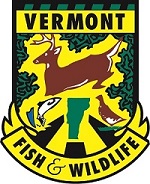
Bats are once again in the headlines and they need our help. There is no evidence at this time that North American bats can transmit the virus causing COVID-19 to humans, according to the Vermont Fish and Wildlife Department. However, there is a very real and growing concern that we could, in fact, transmit the virus to our already vulnerable bats, some of which are threatened or endangered.
Out of an abundance of caution, wildlife agencies across the United States and Canada, in partnership with nuisance wildlife control operators and animal rehabilitators, are enacting safety measures to lessen the possibility of spreading COVID-19 to local animals, just as many veterinarians are doing with our pets. This includes temporarily postponing any activity that involves handling bats.
The goal is protecting our native bats and other vulnerable wildlife from reverse zoonosis, where infected humans transmit diseases to animals. These measures will also prevent local wildlife from becoming a new repository for COVID-19 in North America while further investigations are conducted.
“Vermont is home to nine bat species, five of those are endangered or threatened,” said Fish and Wildlife small mammal biologist Alyssa Bennett. “It’s important that we protect our local bat populations from infectious disease transmission by admiring them from a safe distance and by staying out of caves and mines where bats hibernate so we don’t disturb them or potentially expose them to this virus.”
“There also are several ways to support bat conservation, including leaving trees with cavities or bark peeling in a roof-like pattern on your property to provide bat roosting sites, installing bat houses if you need to safely evict bats from your home, and reporting bat colonies to our department.”
“Please visit our website to become familiar with what to do if you encounter a single uninvited bat in your home or need to safely evict a colony of bats,” added Bennett. “If anyone has had direct contact with a bat or you suspect a rabies exposure, call the rabies hotline at 1-800-4RABIES, the Vermont Department of Health, or your physician. If you find a large colony of bats in your home, please fill out our Bat Colony Reporting Form on our website, and contact us at 802-353-4818 if you would like a list of nuisance wildlife control professionals in your area. Additional guidance about living with bats can be found on our website: https://vtfishandwildlife.com/learn-more/living-with-wildlife/got-bats.”
For Immediate Release: May 12, 2020
Media Contact: Alyssa Bennett 802-353-4818; Mark Scott 802-777-4217
